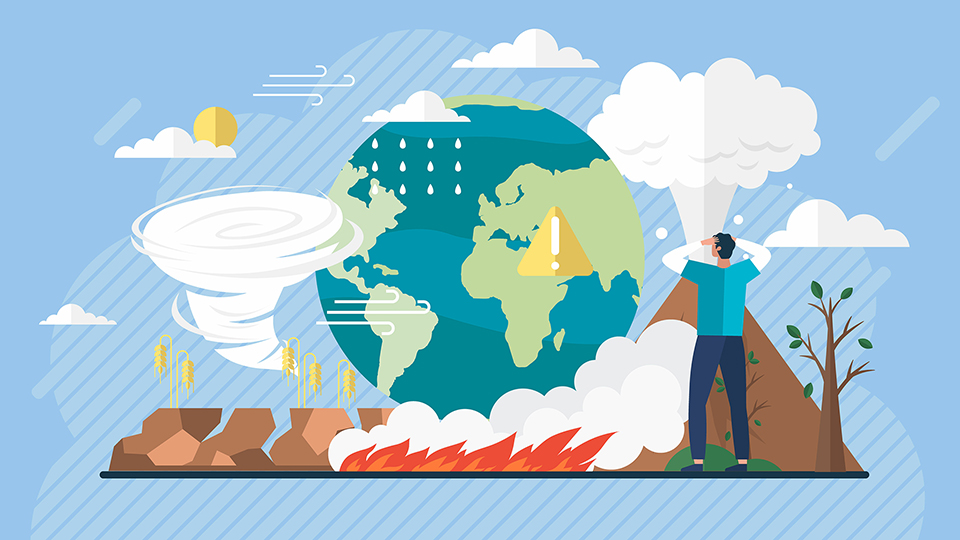According to a survey conducted by Cross Marketing Co., over 80% of the Japanese population expressed concern about the country’s food self-sufficiency. In particular, worries about natural disasters caused by climate change and a decline in agricultural quality have intensified, leading to a heightened awareness of the food crisis compared to last year.

Rising concerns brought by climate change
The survey, which analyzed responses from 2,400 men and women aged 20 to 79 across Japan, delved into anxieties related to climate change and its impacts. The results revealed that 74% of respondents currently feel uneasy about climate change. Moreover, 35% anticipate feeling more anxious about it in the next five years, and 41% predict heightened concern in the next 10 years. Notably, there is increasing apprehension about natural disasters caused by global warming and extreme weather patterns.
The survey also highlighted the public’s concerns about food self-sufficiency. Japan’s food self-sufficiency rate stands at a low 38%, the lowest among developed nations. Among the respondents, 44% said they were “very concerned,” while 38% felt “somewhat concerned,” amounting to a total of 82% expressing strong concern about the country’s food self-sufficiency.
This anxiety stems from factors such as last year’s soaring vegetable prices due to a severe heatwave and the nationwide rice shortage. In fact, the percentage of respondents worried about food self-sufficiency has increased by seven points since last year, with particular concern over the impact of climate change on agriculture.
Many respondents also expressed concern about the effects of climate change on agriculture. Fifty-two percent of participants are worried about “declines in agricultural quality and crop failures.” This anxiety is believed to be fueled by recent extreme weather events that have led to a deterioration in crop quality and reduced yields.
There is also significant concern about the impact of climate change on Japan’s four seasons. Forty-eight percent of respondents are worried that “Japan may lose its four seasons,” a higher percentage than last year. The potential changes to the seasons could have incalculable effects on both agriculture and tourism, highlighting the urgency of addressing climate issues.
Concerns about natural disasters caused by climate change are also intensifying. According to the survey, 63% of respondents are worried about “an increase in heavy rain and flash floods,” followed by 53% who fear “an increase in typhoons.” These natural disasters could directly affect agriculture and infrastructure, making their impact on food supply impossible to ignore.
The survey results indicate that as Japan’s food self-sufficiency rate continues to decline, the risks posed by climate change are becoming more tangible. Especially with the increasing frequency of crop failures, deterioration in quality, and frequent natural disasters, the stability of the country’s food supply is under threat. Addressing how the government and businesses will tackle these challenges remains a key issue moving forward.
Climate Change Survey (2024)
